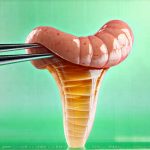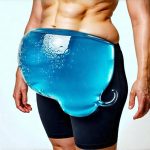Dehydration is often considered simply as lacking enough water, but its impact extends far beyond thirst. It’s a systemic issue affecting virtually every bodily function, including our digestive system – the complex machinery responsible for breaking down food and absorbing nutrients. Many people don’t realize how intimately linked hydration levels are to optimal digestion, and a surprisingly mild degree of dehydration can disrupt this process, leading to a range of uncomfortable symptoms. From constipation and bloating to more generalized discomfort, understanding this connection is crucial for maintaining overall wellbeing.
The digestive system relies heavily on water at numerous stages. Saliva, which initiates the breakdown of food, is largely composed of water. The stomach uses water to produce hydrochloric acid necessary for digestion. Further down the line, the intestines require ample hydration to move food along effectively and absorb nutrients efficiently. When we’re dehydrated, these processes are compromised, creating a ripple effect that can manifest as various digestive complaints. It’s not just about drinking enough when you feel thirsty; proactive hydration throughout the day is often necessary, especially given how easily fluid balance can be disrupted by everyday activities and environmental factors.
The Mechanics of Digestion and Hydration
Digestion isn’t a passive process; it’s an active one requiring a precise amount of fluid to function correctly. Think of your digestive tract as a long, muscular tube—it needs lubrication to move things along smoothly. Water provides that essential lubrication. Without sufficient water intake, the intestinal muscles struggle to contract and propel food waste through the system, resulting in slower transit time and potentially leading to constipation. Furthermore, adequate hydration helps maintain the elasticity of the digestive tract, making it more efficient at absorbing nutrients.
The impact extends beyond simply moving things along. The large intestine specifically reabsorbs water from undigested food material. If you’re dehydrated, your large intestine will attempt to conserve water by drawing it from the stool itself, leading to harder, drier stools and exacerbating constipation. This can create a vicious cycle where the more dehydrated you are, the harder it becomes to pass stool, potentially causing discomfort, bloating, and even hemorrhoids in severe cases. Conversely, attempting to rehydrate rapidly after significant dehydration might lead to diarrhea as the body tries to restore fluid balance – though this is less common.
The relationship between hydration and gut health goes deeper than just physical mechanics. A healthy microbiome—the ecosystem of bacteria living in your digestive tract—requires a hydrated environment to thrive. Dysbiosis, an imbalance in gut bacteria, has been linked to numerous health issues, including digestive problems. While dehydration doesn’t directly cause dysbiosis, it can create conditions that favor its development and worsen existing imbalances. Considering the role of gut sensitivities https://vitagastro.com/can-gut-sensitivities-cause-panic-attacks/ can also offer insight into these complex interactions.
Constipation & Bloating: The Most Common Symptoms
Constipation is arguably the most frequent digestive complaint associated with dehydration. As previously mentioned, insufficient water intake leads to harder stools and slower transit time through the colon. This prolonged exposure to waste products in the colon can also lead to bloating, abdominal discomfort, and a feeling of fullness even after only small meals. The sensation isn’t simply from the blockage; it’s often linked to increased gas production as bacteria ferment undigested food for longer periods.
Recognizing the early signs of dehydration is key to preventing constipation. These include: – Thirst (though not always a reliable indicator) – Dark-colored urine – Reduced frequency of urination – Fatigue – Dry mouth and skin – Headache If you notice these symptoms, increasing your fluid intake should be one of your first steps. It’s important to remember that even healthy diets https://vitagastro.com/why-even-healthy-diets-can-cause-discomfort/ can sometimes lead to discomfort if hydration isn’t prioritized.
Addressing constipation caused by dehydration isn’t always about simply chugging water. While increased hydration is vital, incorporating fiber into your diet simultaneously can significantly improve results. Fiber absorbs water, softening stools and adding bulk to help move things along. However, increasing fiber without increasing water intake can worsen constipation, so it’s essential to do both in tandem. Gentle exercise also encourages bowel movements and helps stimulate the digestive system.
The Role of Electrolytes & Rehydration Strategies
Water alone isn’t always enough when addressing dehydration-related digestive discomfort. Electrolytes – minerals like sodium, potassium, and magnesium – play a critical role in maintaining fluid balance within the body. When you sweat (through exercise or even hot weather), you lose electrolytes along with water. This imbalance can further disrupt digestive function and exacerbate symptoms.
Rehydration strategies should therefore consider electrolyte replenishment. Sports drinks can be helpful in moderation as they contain electrolytes, but many are also high in sugar which can have its own set of issues. Oral rehydration solutions (ORS) specifically formulated for dehydration are often a better choice because they provide the necessary electrolytes without excessive sugar. Alternatively, you can create your own ORS using water, a pinch of salt, and a small amount of honey or fruit juice for flavor.
Beyond specific drinks, consider foods rich in electrolytes: – Bananas (potassium) – Coconut water (electrolytes) – Leafy green vegetables (magnesium) – Spinach, kale, etc. – Watermelon (hydration & electrolytes) Gradual rehydration is also important. Drinking large amounts of water quickly can overwhelm the digestive system and potentially lead to nausea or diarrhea. Sip small amounts frequently throughout the day rather than attempting to “catch up” all at once. Looking into common additives https://vitagastro.com/common-additives-that-cause-digestive-issues/ in rehydration drinks may also be beneficial to avoid further complications.
Identifying Other Potential Causes
While dehydration is a common culprit behind digestive discomfort, it’s crucial not to assume it’s always the cause. Many other factors can contribute to similar symptoms, and ignoring these could delay appropriate treatment. Conditions like Irritable Bowel Syndrome (IBS), food intolerances, inflammatory bowel disease (IBD), and even stress can all manifest as constipation, bloating, or abdominal pain.
If your digestive discomfort is persistent, severe, or accompanied by other concerning symptoms such as blood in the stool, unintentional weight loss, or fever, it’s essential to consult a healthcare professional. Self-diagnosing and self-treating can be dangerous. A doctor can accurately identify the underlying cause of your symptoms and recommend an appropriate course of action. It’s also important to consider if food intolerances https://vitagastro.com/can-food-intolerances-cause-eye-puffiness/ might be contributing to your symptoms.
It’s also important to consider your diet. Highly processed foods, low-fiber diets, and excessive alcohol or caffeine consumption can all negatively impact digestion. Maintaining a balanced diet rich in whole foods, fiber, and probiotics (found in fermented foods like yogurt and kimchi) can support healthy gut function. Finally, managing stress levels through techniques like meditation, yoga, or deep breathing exercises can also play a significant role in improving digestive health. Remember that hydration is often part of the solution, but it rarely is the entire solution for chronic digestive problems. Understanding how food sensitivities https://vitagastro.com/can-food-sensitivities-cause-inflammation/ play a role, and even the impact of artificial flavors https://vitagastro.com/can-artificial-flavors-cause-digestive-issues/, can help you tailor your diet for optimal gut health. Additionally, the impact of seafood https://vitagastro.com/the-link-between-seafood-and-digestive-discomfort/ should also be considered for those experiencing digestive issues.


















